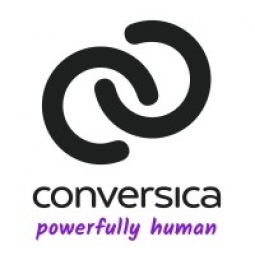Technology Category
- Cybersecurity & Privacy - Identity & Authentication Management
- Infrastructure as a Service (IaaS) - Virtual Private Cloud
Applicable Industries
- Oil & Gas
Applicable Functions
- Procurement
- Sales & Marketing
Use Cases
- Leasing Finance Automation
- Time Sensitive Networking
About The Customer
SecureAuth is a leading provider of adaptive access control solutions, enabling organizations to determine identities with confidence. The company offers a flexible and adaptive identity and access management platform that delivers modern, frictionless, and pain-free authentication for employees, customers, and partners. SecureAuth is committed to securing data for organizations and has a robust lead generation program in place. The company uses multiple channels for lead generation, including third-party webinars, content syndication, sponsorships, PPC, company-hosted webinars, and lead generation through the company’s website.
The Challenge
SecureAuth, a leader in adaptive access control solutions, was facing a challenge in identifying new prospects with a propensity to buy and re-engaging qualified-but-stale leads. The company had a robust lead generation program in place, which included multiple channels such as third-party webinars, content syndication, sponsorships, PPC, company-hosted webinars, and lead generation through the company’s website. However, the increased flow of leads required a consistent and continuous qualification and engagement process. The company was struggling with identifying qualified, ready-to-purchase prospects and ensuring consistent follow-up. The sales reps were spending too much time on cold prospects and not enough time on hot leads due to the lack of clarity on which leads were more likely to convert. Furthermore, the company found that it was not making enough outreach to engage leads or understand where prospects were in the sales funnel.
The Solution
SecureAuth implemented Conversica’s AI Automated Sales Assistant, Samantha, to address the challenge of consistent lead follow-up. Samantha, an Artificial Intelligence-based software, engages potential customers in natural, two-way human conversations, and continues to engage and nurture them until they either express interest or specifically opt-out. SecureAuth used Conversica to follow up on two specific types of leads: all of the content syndication leads that weren’t Marketing-qualified yet, and already qualified leads that the ISRs had attempted to engage but couldn’t reach. The AI assistant helped identify hot leads sooner and ensured consistent, continuous lead follow-up. The assistant reached out to leads with a lightweight touch, asking if they were ready to engage with Sales. Over time, Samantha became an integral part of the sales team, helping the sales reps identify prospects who were willing to take their call.
Operational Impact
Quantitative Benefit

Case Study missing?
Start adding your own!
Register with your work email and create a new case study profile for your business.
Related Case Studies.

Case Study
Taking Oil and Gas Exploration to the Next Level
DownUnder GeoSolutions (DUG) wanted to increase computing performance by 5 to 10 times to improve seismic processing. The solution must build on current architecture software investments without sacrificing existing software and scale computing without scaling IT infrastructure costs.

Case Study
Remote Wellhead Monitoring
Each wellhead was equipped with various sensors and meters that needed to be monitored and controlled from a central HMI, often miles away from the assets in the field. Redundant solar and wind generators were installed at each wellhead to support the electrical needs of the pumpstations, temperature meters, cameras, and cellular modules. In addition to asset management and remote control capabilities, data logging for remote surveillance and alarm notifications was a key demand from the customer. Terra Ferma’s solution needed to be power efficient, reliable, and capable of supporting high-bandwidth data-feeds. They needed a multi-link cellular connection to a central server that sustained reliable and redundant monitoring and control of flow meters, temperature sensors, power supply, and event-logging; including video and image files. This open-standard network needed to interface with the existing SCADA and proprietary network management software.

Case Study
Refinery Saves Over $700,000 with Smart Wireless
One of the largest petroleum refineries in the world is equipped to refine various types of crude oil and manufacture various grades of fuel from motor gasoline to Aviation Turbine Fuel. Due to wear and tear, eight hydrogen valves in each refinery were leaking, and each cost $1800 per ton of hydrogen vented. The plant also had leakage on nearly 30 flare control hydrocarbon valves. The refinery wanted a continuous, online monitoring system that could catch leaks early, minimize hydrogen and hydrocarbon production losses, and improve safety for maintenance.










